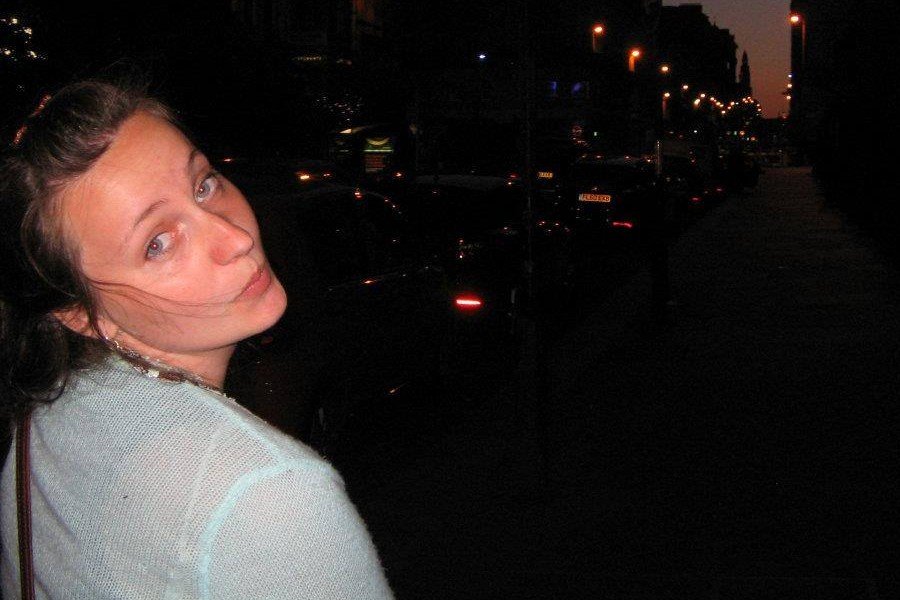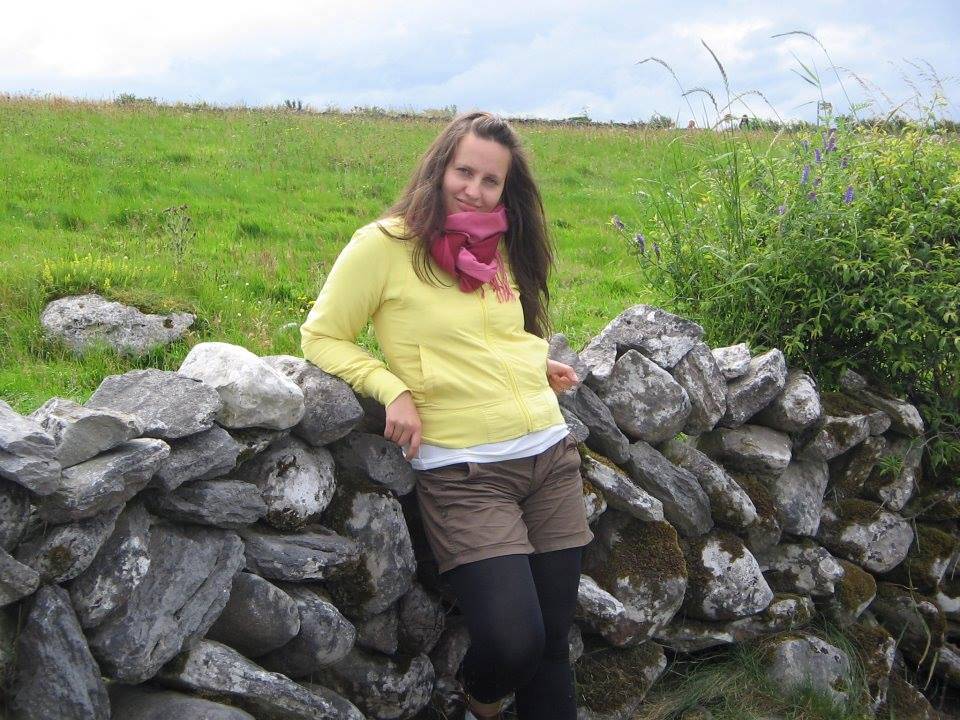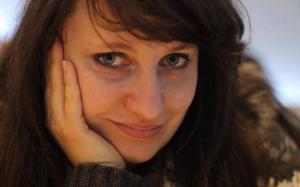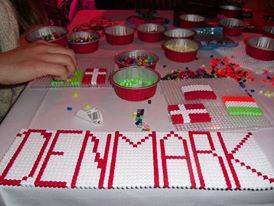Anita Luik is currently finishing her masters degree in contemporary Middle East studies in the University of Southern Denmark. Although at the moment living in one of the oldest cities in Denmark, Odense, she has also briefly lived in Israel and gained an insight into everyday Muslim life and Islamic customs. She has done research into the reasons behind women’s suicide terrorism, given lectures about it and tried to find ways to peacefully mediate between the Arab and European traditions to ease the problems developing from a fast-rising trend of Arab immigration to Europe.
Anita, what made you leave Estonia and how did you end up in Denmark?
I have always felt I want to try living in another country. There is so much more to see and do elsewhere than Estonia could offer. I made two attempts to leave: I applied for the job of au-pair in the UK and later when I got accepted to the University of Bath. But I think it wasn’t the right time for me at that stage of my life, because at the end I wasn’t able to go. After finishing my BA in political science, I also wanted to have a master’s degree. For my thesis I had written about the motivations of the women suicide terrorists in Chechnya and Palestine and discovered that I am passionate about topics such as Islam and the Middle East. I tried to find faculties in Estonia that would teach it, but there weren’t any.
Half-a-year after my graduation I got an invitation from the Institute of Jaan Tõnisson to take part in a project they were running and to give presentations in primary and high schools about my BA thesis. I agreed and during that time I became even more confident that I was interested about the Middle East and changing false stereotypes about the Muslims. Since there are no universities in Estonia that concentrate on the Middle East I decided to go abroad. I had heard good things about Denmark and its free education system, therefore I applied at the University of Denmark and when I got a letter that I’d been accepted, I didn’t think twice.
How do you manage and what challenges have you had?
One of the biggest challenges was that I didn’t know any Danish. I remember getting a bit frustrated when everybody around me was speaking in Danish and I didn’t even understand a word. It also made finding a job more complicated. I had money for a few months, but that was it. I went door-to-door with my CVs and contacted a lot of restaurants and other places I thought I could work in.
Another challenge was being away from everybody dear to me and all their important events – birthdays, weddings, get-togethers. Luckily I have managed to be in contact with them through Skype, Facebook and emails.
One of the things that has really helped me was being in touch with Estonians living in Denmark and going to their events. It was good to hear Estonian and celebrate Estonian holidays. Since they had once been in the same situation as me – new in a foreign country – they knew what thoughts and emotions I was going through and I felt good talking to them.
So how do I manage? Through a constant reminder that I am doing what I believe in and moving closer to the life I have always wanted and can’t have while living in Estonia. I am also very grateful for the people in my life who have been an enormous support. Few months after moving to Denmark I met with a Danish-Estonian who needed some help with her child and agreed to offer me a cheap place to live. Living with her I felt like part of the family. It wasn’t just a work anymore, it was home. It was also good for my Danish skills – living with an Estonian-Danish family, I had to speak some Danish every day.
What were your first impressions of your new environment?
I remember that the first thing I noticed were the bicycles – they were everywhere. I was pleasantly surprised that all people, no matter of their age or status, were using bicycles as a main way of transport.
I also saw that people dressed more natural, seemingly more effortless and they didn’t look so fake. For example, many women in Estonia have fake eyelashes, hair extensions, fake nails, fake tan and strong make-up in everyday life. These are the things I could constantly see in Estonia, but not in Denmark. Of course there are always exceptions, but the overall image of a Dane is simple but stylish.
What do you like most about life in Denmark?
I really like that Danes use bicycles as a main way of transport. I wish more countries would be like this. It reduces car noise and it is also very healthy. There are bicycle roads going basically everywhere.
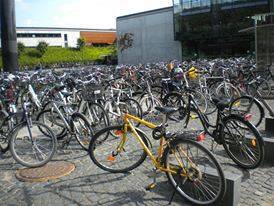 Another thing I really enjoy is the cultural diversity, different nations, looks, personalities. Sometimes it is just interesting to walk on the streets and look all the variety that Denmark’s population can offer. Thus it is fascinating to talk with people with different ethnic backgrounds and listen to their stories.
Another thing I really enjoy is the cultural diversity, different nations, looks, personalities. Sometimes it is just interesting to walk on the streets and look all the variety that Denmark’s population can offer. Thus it is fascinating to talk with people with different ethnic backgrounds and listen to their stories.
Lastly, Denmark has a good system for integrating foreigners. They offer free Danish lessons and mentors who help you to adapt in the society.
Do you think that Estonia could learn from Denmark of how to integrate different nationalities into society, and how?
I’ve heard that Estonia has introduced many different projects to integrate immigrants, yet still there is a lot of room for learning and change. Firstly, in terms of language, I like the Danish idea of free language classes. Knowing at least some language definitely helps integrate more easily. Secondly, there should be more special units that are responsible for helping the integration of an immigrant. At the moment it seems to me that our support system for the newcomer is not sufficient. Thirdly, since our country is relatively young and we don’t have so many experience in the area, the question of integrating different nations is not getting enough attention. Therefore, the Estonian government should put more emphasis on this question.
After living in a secular democracy like Denmark and then visiting the Middle East, do you think that Islam is repressive on women and minorities?
I know what people expect to hear: that it is repressive, but I have to remind them that we tend to evaluate everything through our European norms and values. Therefore for us it looks definitely repressive and suppressed. Since we are raised with different values and in a more liberal society, it would be extremely hard and conflicting for us to live there. However, for the people who have been raised with these norms, it doesn’t seem as repressive as for us. For them it is normal, part of their everyday life and a lot of them condemn Western and European values of being too immoral and liberal. So you see, it is not an easy question to answer.
You said that as part of your thesis you wrote about the motivations of female suicide terrorists in Chechnya and Palestine. What were your conclusions?
There were different reasons for the increase of women suicide terrorists in the last decade. First, various terrorist groups have discovered that it is easier for women to reach the target. In our minds we have certain stereotypes about suicide terrorists and we tend to leave out women. Therefore it is easier for them to move around without being suspected. Women are also not associated with violence and death, but rather with kindness and birth – they can pretend to be pregnant and hide explosives in a specially designed fake bellies. Secondly, suicide terrorism is a highly symbolic act and the success of it largely depends on how much it is covered by the media. Suicide terrorism conducted by a woman is a lot more attractive to the media than the same act done by a man. Thirdly, in these societies (Chechen, Palestinian) women’s virtue, purity, honour and marital status are highly valued, in some cases even more than a person’s life. Therefore, in cases where women were still single in the age that society already found worth condemning, or they had divorced or without children, or in extreme cases had been raped, being a suicide terrorist was a way to reclaim their dignity in the eyes of the society and family. Other reasons were also the death of a loved one, revenge and poverty.
Lastly, the reasons connected with religion. Some suicide terrorists claim that the Quran allows or even demands killing those who do not believe in Allah and therefore they are just following God’s message. Others say that since we all die in the end, it is better to sacrifice your life to support and maintain the will of the almighty. There were also those who feel that the Western world, with its sins and immoral behaviour is damaging the Arab people and it must be stopped. Also, we should not forget that there are supposed to be rewards in the afterlife when a person has taken her life in the name of God, such as getting a good husband, health, beauty and being reunited with your loved ones.
To be honest, this is a really fascinating subject for me and I could go on for much longer and in more detail, but for the sake of the reader I will stop now. Although I would be more than happy to discuss this subject with somebody who has an interest in it.
What is your opinion on the Palestinian-Israeli conflict?
Unfortunately neither myself, nor the people I have talked with while in Israel, don’t really believe that there will be a change in the near future. The main topics involved, such as the question of refugees, borders and the right of return are not issues you could approach and solve while using only politics and logic. These topics are rooted deeply in both nations’ historical memories and both of them strongly believe that they have the sole right to this land. The US has strongly pushed for the two-state solution, but experience has shown that neither the Palestinians nor Israel are willing to meet the other side’s demands and mediators are powerless to push for any meaningful solution. There is one land and two nations, even the simple logic says that you can not create equal conditions for both of them. Since Israel is in a better power position and has the support of the US, they have no need to give in to the Palestinians’ demands nor make any compromises.
What about Estonians in Denmark and do you still have a connection with Estonia as well?
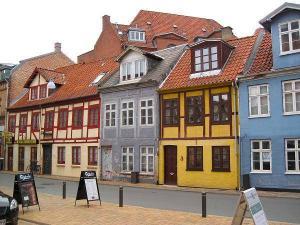 I try to be in contact with Estonians in Denmark, at least go to their events or when somebody has a birthday or another occasion. It is good to have at least some kind of connection with the people who speak the same language and know our history and past.
I try to be in contact with Estonians in Denmark, at least go to their events or when somebody has a birthday or another occasion. It is good to have at least some kind of connection with the people who speak the same language and know our history and past.
My main connection with Estonia is through my family and some friends who stayed there. I value the people in my life, therefore I knowingly take time to talk to them. Sometimes I read Estonian newspapers, but it disappoints me: the same politicians and their power fights.
What do you think should be done differently in Estonia then – how to make the life better?
The first thing – people should change their attitude and the way of thinking. I see and hear people constantly whining about their lives and all the things that are wrong. It seems that they like to wallow in self-pity and blame others, rather than really try and change something. More positivity, kindness and actions for the better life and I assure life will be better.
Another aspect is that the government, the society nor employers value our people. A lot of Estonians work hard 12 hours a day, getting paid the minimum wage without any extra benefits and are treated like a lower class. It also seems that there is no need for educated people in Estonia, therefore a lot of youngsters try to find work in other countries. How to make it better? The way of thinking has to change. The government and the society need to start to value our people and our culture.
What do you miss most about Estonia?
Besides the family and friends, I miss the Estonian nature. I love its fields, forests, lakes, rivers, long white nights. There are many beautiful countries, but none of them can be compared with the beauty of Estonia. Sometimes I also miss the language, reading in Estonian and going to the Estonian theatres and concerts.
What motivates you in life generally and do you have any advice for others?
There are many things in life that motivate me: my dreams, my past, wanting a better life for me and my family, having faith that I have a purpose on this planet, knowing that I am loved and protected by life. But I guess the biggest motivator is the little voice in my heart that says, “I am a fighter and quitting is never an option!” I also remind myself that we don’t have unlimited amount of time, therefore I don’t want to regret not doing the things I wanted when I still had time.
For others and also for myself I say that the most important thing in life is being in peace with yourself. Our soul usually tells us when something is wrong and what we really dream of, but we tend to ignore it or are too afraid to change. Society has its own demands, therefore we rush through life pleasing other people. We go to university, find a job, get married and have children. All the time hearing society whispering to us, “Faster-faster, better-better, more-more!” In the end we may look successful in the eyes of others, but secretly think of our dreams that we once had but didn’t have the courage to follow. Take time to think about your life: are you doing something that you really want or is it time to change something?
Also get to know yourself, read books, travel, meet with interesting people. Find out who you are and what you are passionate about. Forgive yourself the past and free yourself from the hatred, it only breaks you. Love yourself and find the magic of living. I know it is easier to say than do, but it is definitely worth the effort.

